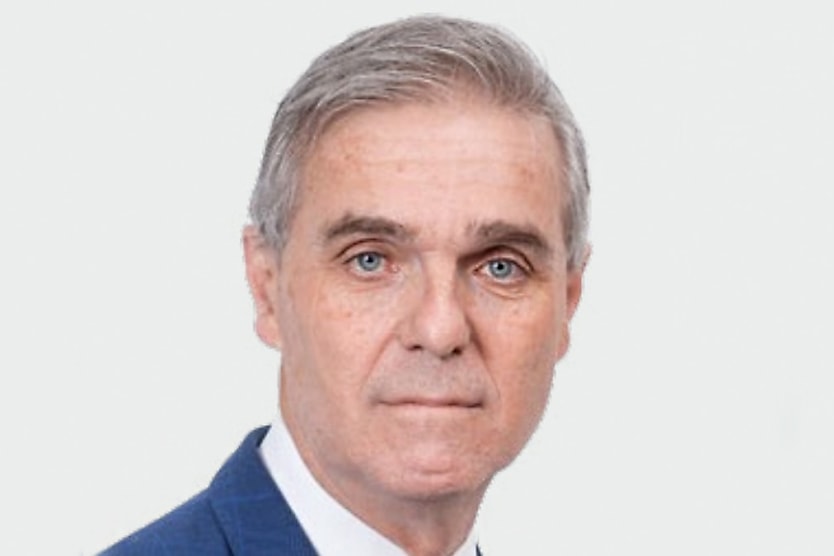
What is being pegged as nightmare fuel for Australian workers is the potential for a dystopian-like future where AI algorithms dictate pay, track workload, and become an unchecked system that exceeds human intelligence.
A recent Halloween special debate, titled “Artificial Intelligence at Work – Trick or Treat?”, opened the floor to leading experts in technology, law, and labour to share their concerns about the rising threat that unchecked AI can have on the Australian workplace.
Referring to a dystopian future where AI becomes a controlling framework in workplace systems, Justice Adam Hatcher, president of the Fair Work Commission, explained that there are already occurrences of AI being used in a manner that borders on employee exploitation.
“It’s happening right now in the United States. It’s got a name, and it’s called algorithmic wage discrimination ... This is having major effects on the world of work and employment rights, and we can expect that to hit Australia fairly soon,” Justice Hatcher said.
The debate, held at the Wesley Conference Centre in Sydney, hosted by the Australian Institute of Employment Rights, offered rather chilling stories of the impending threat that AI could pose to Australian workers.
Journalist David Marr himself shared a personal account of his work being used to train AI models without his consent: “I’ve been scrapped … This is theft.” He went on to state that there is an urgent need for both an ethical and legal framework that can protect workers from similar contraventions that can be undertaken by this rapidly evolving technology.
This was a sentiment echoed throughout the debate, with Michael Harmer, founder of Harmers Workplace Lawyers, revealing that his firm took matters into its own hands, banning the usage of AI tools like the popular ChatGPT due to concerns about quality and safety.
“They’re basically introducing it to the world for a buck without a design for safety,” he said. “It would not pass muster under Australian safety laws.” Harmer called for a moratorium on AI development beyond ChatGPT-4, warning of the dangers of unchecked AI exceeding human intelligence.
The debate, of course, had contrasting opinions as Bill Simpson-Young, chief executive of the Gradient Institute, cautioned against overall generalisations of AI and underestimating its capacity.
“AI is not one thing. Don’t think of AI being what it is now ... it is changing very quickly,” Simpson-Young said. He also added that there have been numerous attempts to improve AI safety, but he was also concerned about the actions of “rogue nations and how they may work to undermine global AI safety concerns”.
There were some prominent voices at the debate, such as Senator Murray Watt, Minister for Employment and Workplace Relations, who spoke on the government’s responsibility to protect workers amid the constant technological advancements of AI.
Senator Michaela Cash, shadow minister for employment and workplace relations, also attended the event, expressing the need for a balanced approach that safeguards the Australian workforce while allowing technological innovation to foster, which can, in turn, help Aussie businesses flourish.
Liam O’Brien, assistant secretary of the Australian Council of Trade Unions (ACTU), painted two contrasting scenarios. He highlighted a future where AI can either empower workers or become “a grim reaper in search of jobs to destroy”. Overall, O’Brien stressed the need for a strong worker voice in shaping the AI transition.
Helen Cooney, national assistant secretary of the SDA, who brought the debate home to the retail sector, said: “One of the most twisted things about trick or treating is that the tricks can be a treat and the treats can be a trick.”
She argued for a fair share of productivity gains for workers, saying: “The benefits of digitalisation should be shared with workers alongside community and shareholders.”
The importance of discussions such as these cannot be understated. The reach of AI connects to technology, law, and labour, and the impacts that it can have on these sectors are immense. Increasing dialogue that involves these sectors directly must continue at the same rate that the technology advances to avoid it becoming an unchecked power that indiscriminately exploits workers across Australia.
Professor Ron McCallum AO, a champion of disability rights and the debate’s namesake, delivered a powerful message of hope and caution that is a good wrap-up of the dialogue.
“I love technology,” he said, sharing how assistive technologies have empowered him and others with disabilities. He demonstrated an AI-powered app on stage that allowed the blind to “see” using their camera phone, which analysed the scene and gave audio descriptions.
Showing the benefits of this technology, he, like many of his fellow speakers, acknowledged the disruptive potential of AI, urging for strong ethical frameworks and international cooperation to ensure a just and equitable transition.
Kace O'Neill
Kace O'Neill is a Graduate Journalist for HR Leader. Kace studied Media Communications and Maori studies at the University of Otago, he has a passion for sports and storytelling.










